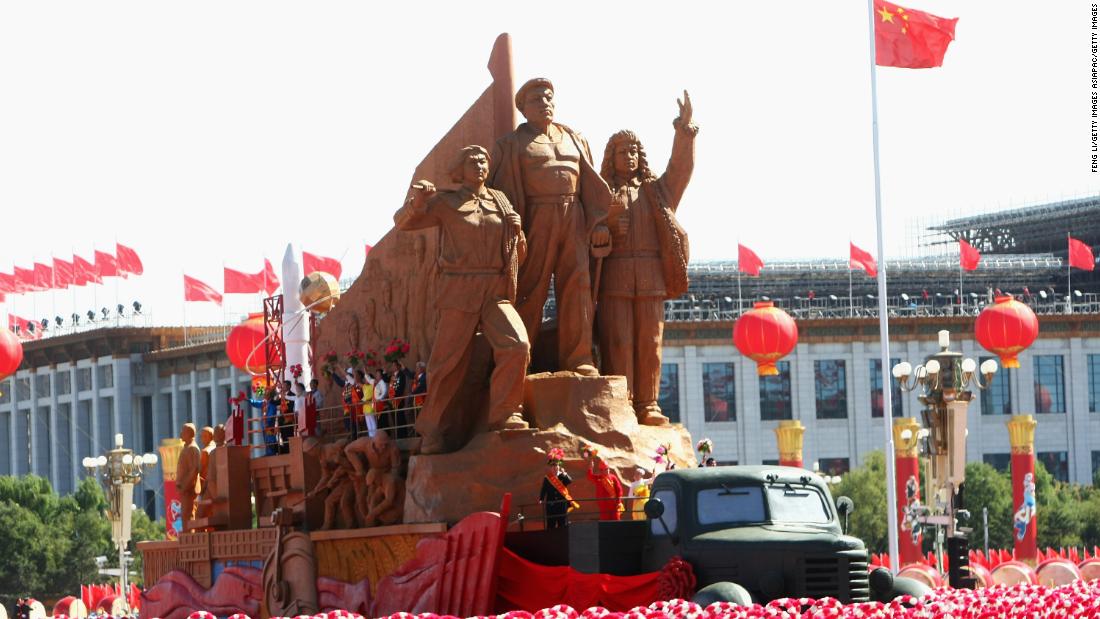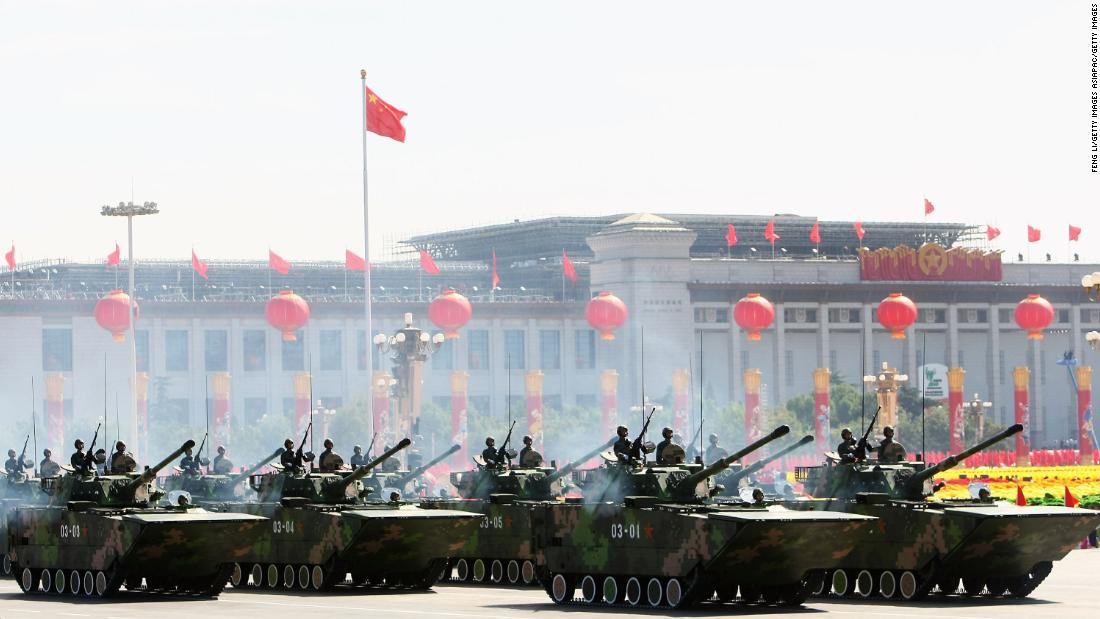Hong Kong – For months, October 1 has loomed over the mass pro-democracy demonstrations in Hong Kong, as a whispered deadline for the ruling Chinese Communist Party to take action to end the unrest.
On that day, Beijing will be hoping to project an image of national strength and unity with a military parade through the city to mark 70 years since the founding of the People’s Republic of China.
It’s a significant milestone that China’s leaders will not want overshadowed by protests in Hong Kong, which have grown in intensity since mass demonstrations began in June.
But what action the party might take is unclear and highly debated, with some even saying the greater threat will be after the anniversary, if protesters disrupt or distract from the day’s celebrations and embarrass the country’s Communist leaders.
The Hong Kong government has said there is no such deadline for action by Beijing to end the protests. In audio leaked to Reuters, Hong Kong Chief Executive Carrie Lam can be heard reassuring business leaders that “they and ourselves have no expectations that we could clear up this thing before the 1st of October.”
But the whispers have continued, with no clear consensus on what October 1 might mean for Hong Kong.
Some predict that a military crackdown before October is inevitable, as Beijing seeks to save face. Others say that wanting to present a calm, united front in two weeks’ time is the only thing holding Beijing back.
“The Chinese Communist Party will not allow any sign of a ‘step down’ around the moment of the 70th anniversary … They will do everything to make sure the situation stays under their control,” said 30-year-old protester David Wong.

Xi’s moment to shine
Every country has important anniversaries or celebrations, but the Chinese Communist Party heavily politicizes dates such as this and uses them as opportunities to provide justification for the party’s ongoing mandate to govern.
For instance, 2021 will be the 100th anniversary of the Communist Party. It’s also the self-imposed deadline for President Xi to deliver some of his signature achievements, such as eradicating all poverty and raise living standards to new heights.
The 70th anniversary on October 1 will similarly be used by the government to highlight how far China has come economically and militarily since the party took power in 1949.
In the last 20 years alone, China’s wealth per adult has quadrupled, while its GDP has gone from just $150 billion in 1978 to over $12 trillion in 2018. Just over 30 million people are still living in poverty in China, down from 770 million 40 years ago.
On the day itself, Xi is expected to address the nation and oversee a military parade through the streets of Beijing, followed by fireworks and cultural performances across the country.
The celebrations in Hong Kong are expected to be muted in comparison. In the recording of Lam leaked to Reuters, she said that, given the recent “disruptions,” “we are going for a modest but solemn type of celebrations on the first of October.”
The festivities also come at an important time for President Xi who is embroiled in a trade war with the United States, which has reverberated through global economy.
Beijing has gone to vast lengths to ensure that the 70th celebrations go off without a hitch.
Security has been tightened across the capital of Beijing and state media is promoting positive news stories about the government’s achievements. On television, popular dramas have even been banned in favor of patriotic films.
In this atmosphere, headline-grabbing protests against the government in one of their most well-known cities will frustratingly complicate their narrative of a united and powerful country, happy under the Communist Party’s leadership.

What can they do though?
But just three weeks out, it isn’t entirely clear what the Chinese government can do to prevent protesters from disrupting October 1 celebrations in Hong Kong.
The protests have shown no signs of easing despite the Hong Kong government’s promise to withdraw the controversial China extradition bill that brought people onto the streets back in June.
Some have speculated that Lam’s decision to announce the long-awaited withdrawal of the extradition bill was an attempt to ease tensions ahead of the important date. Many doubt that it will work.
Protesters still have four key demands they say must be met before the unrest will end, including greater democracy in the Asian financial hub.
In recent weeks, police have taken a hardline approach against violent protesters, arresting demonstrators in greater numbers and breaking up even small gatherings.
But with more protests planned for this weekend, neither approach appears to have been successful so far.
With no more concessions likely in the short term, the government could look to impose greater restrictions on protesters to try to pacify the city ahead of October 1.
There have already been attempts to close down public transport stations close to planned protests, although it hasn’t proven successful as demonstrators have found alternate modes of transport to get around the restrictions.
The possible deployment of Chinese troops on Hong Kong streets is regularly hinted at by Beijing. Officials have suggested the protests carry “terrorist” overtones and in the past two months, Chinese paramilitary police have held large drills across the border in the city of Shenzhen.
But any military intervention appears to have been ruled out for now, according to the leaked recording from Lam.
Little wonder, as it would be disastrous for not just Hong Kong but China more broadly. Investors would flee at the first sign of any military boots hitting the streets, something Beijing can’t risk as the domestic economy slows.
As their options dwindle, Beijing may be forced to grin and bear a Hong Kong spoiler to their national day, but with the Communist Party’s pride at stake, any over-the-top October 1 protests could be met with an escalation from the government.
After all, even minor attacks on the symbols of the Chinese government have been enough to provoke the fury in Beijing and state-run media.
When protesters removed a Chinese national flag in the shopping district of Tsim Sha Tsui and threw it in Victoria Harbor, state-run media reacted with fury. State-run tabloid Global Times called for “justice (to) be served.”
Beijing won’t forget quickly if Hong Kong embarrasses it during the Communist Party’s moment of triumph.
As reported by CNN
